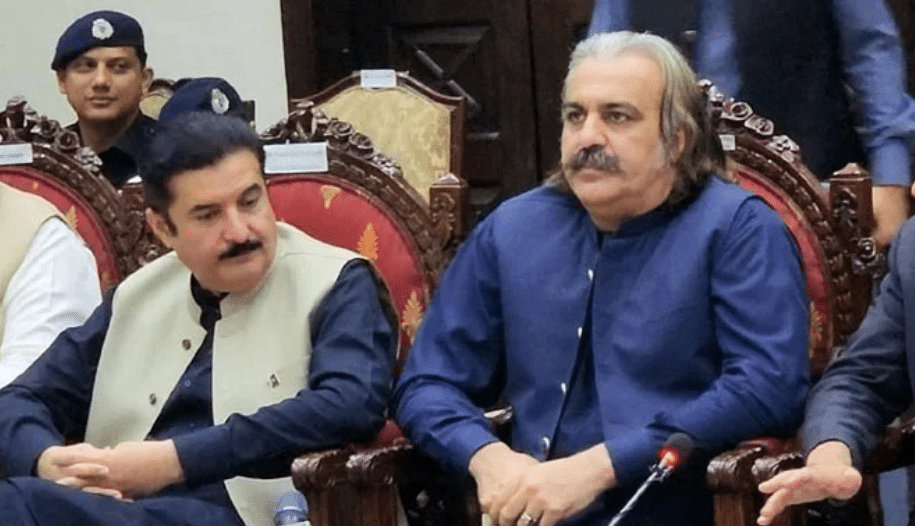Is a no-confidence move brewing against Gandapur ?
LAHORE: The reserved seats reallocation has brought out some curious numbers in the Khyber Pakhtunkhwa Assembly. Take the Pakistan Muslim League-Nawaz (PML-N), for example.
The party secured nine reserved seats despite having only six elected members. Likewise, the Jamiat Ulema-e-Islam-Fazl (JUI-F) got 12 reserved seats with just seven elected members, while the Pakistan Peoples Party (PPP) managed seven reserved seats with only four elected members.
The KP Assembly is held with a clear majority by the PTI, whose Ali Amin Gandapur enjoys the support of 58 Sunni Ittehad Council (SIC) members and 34 independents — almost all of them Pakistan Tehreek-e-Insaf (PTI)-backed candidates who did not formally join the SIC. Interestingly, Gandapur himself took oath as chief minister as an independent and also did not join the SIC.
Rana Sanaullah and Khawaja Asif have both denied the possibility of a vote of no-confidence against the KP CM, and Gandapur seems confident enough, challenging the opposition to bring such a vote and promising to quit politics if they succeed. However, with the opposition alliance’s strength in the assembly increasing to 53 members, talk of a possible vote of no-confidence is gaining momentum.
To remove a chief minister, the opposition can either bring a vote of no-confidence under Article 136 of the constitution or the governor can ask the CM to seek a vote of confidence under Article 130(7), if the governor feels the CM has lost majority support. In the case of a vote of no-confidence, the opposition must prove its majority. However, if the governor initiates the move, it is the government that must demonstrate it still holds the majority.
For a vote of no-confidence to succeed, the opposition would need the support of at least 73 members — meaning they are currently 20 members short.
To reach this number, they could target not only the independent members but also attempt to sway SIC members. According to the Supreme Court of Pakistan’s October 2024 ruling — overturning an earlier 2022 decision — the votes of defecting members will count, even if they face disqualification afterwards. In such a case, by-elections would be required on the vacated seats.
However, if the opposition targets the independents, no by-elections would be necessary.
Still, the opposition has its work cut out for it. Of the 34 independents, with the exception of Liaqat Muhammad Khan (formerly of the Awami National Party), Muhammad Usman (JUI-F), Khaleeq ur Rehman and Mushtaq Ahmed Ghani (Pakistan Muslim League-Quaid), all others either began their political careers with the PTI or had previously contested as independents before joining the party. Some are first-time winners. Although anything is possible in politics, it would be very difficult to break their allegiance to the PTI.
Targeting the 58 PTI-backed members who joined the SIC could be even more challenging. Many of them have been with the PTI since its inception, some since their student days. Several are first-time winners, while others won their first elections on the PTI ticket. It would be extremely difficult for them to abandon the party in a time of crisis.
Despite recent turmoil, the PTI still enjoys overwhelming public support in KP, and any member leaving the party would likely struggle to face their voters.

